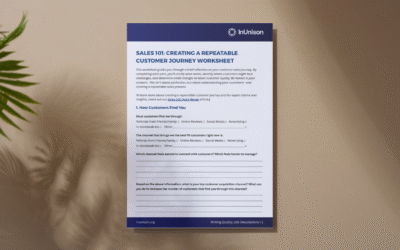Understanding the Basics for Sustainable Growth
Whether you’re launching a startup or leading a growing company, understanding your business financials isn’t just a nice-to-have—it’s essential. From managing cash flow to preparing for future growth or securing funding, strong financial foundations help business owners make smarter decisions with confidence.
This guide walks you through the fundamentals of business financials and introduces tools and resources—including a powerful forecasting tool and free training from financial expert Andrew Farrell, Farrell Financial—to help you thrive.
Start Smart: Separate Your Business and Personal Finances
The first step to financial clarity is keeping your business and personal finances completely separate. This means:
- Opening a business bank account
- Using a business credit card
- Paying yourself a regular salary or owner’s draw
Not only does this simplify your bookkeeping and taxes, but it also protects your personal assets and ensures a more professional approach to managing your business.
Bookkeeping Basics: Understanding the Accounting Cycle
Good financial management starts with good recordkeeping. Even if you work with a bookkeeper or accountant, it helps to understand the basics:
- Track every transaction: Income and expenses should be recorded in a ledger or accounting software.
- Use the right method: Most small businesses use either cash or accrual accounting. Make sure you know which one you’re using and why.
- Close your books monthly: Reconciling your accounts every month helps catch errors early and gives you a real-time snapshot of your financial health.
Meet Your Financial Statements
Your businesses financials reports are your business’s report card. Here are the big three:
- Balance Sheet: Shows what you own (assets), what you owe (liabilities), and what’s left over (equity) at a specific point in time.
- Income Statement (Profit & Loss): Shows your revenues and expenses over a period of time, revealing whether you’re making a profit.
- Cash Flow Statement: Tracks how money moves in and out of your business. Even profitable businesses can struggle without strong cash flow.
These reports are critical when applying for loans, attracting investors, or planning for growth.
Analyze and Plan: Financial Ratios and Forecasting
Once you have clean, accurate financial statements, the next step is analysis. Financial ratios can help you understand your:
- Liquidity (Can you pay your bills?)
- Profitability (Are you making money?)
- Efficiency (Are you managing resources well?)
- Solvency (Can you sustain your debt?)
Even more important? Forecasting. That’s where the magic happens.
A good financial forecast allows you to:
- Plan for seasonality or slow periods
- Predict when you’ll need funding
- Make smart hiring or investment decisions
We recommend using this free Finance Forecasting Tool, created by Fractional CFO, Andrew Farrell. It’s user-friendly, customizable, and designed for small, local businesses. Plus, it comes with a step-by-step video walkthrough to help you feel confident using it.
Learn from an Expert: August 27 Financial Training
Want to dive deeper into financial strategy? Join us for “Mastering the Building Blocks of Financial Success” with Andrew Farrell, Farrell Financial on August 27. In this live event, Andrew will break down core financial principles, show you how to use the forecasting tool, and answer your real-world questions.
Whether you’re brand new to business finances or just need a refresher, this session will give you tools you can use right away. It’s free for members, but space is limited—save your seat today!
Final Thoughts: Make Your Finances Work for You
Business owners often say they “aren’t numbers people,” but the truth is: you don’t have to be an accountant to take control of your finances. You just need the right tools, a basic understanding of your financial statements, and a willingness to check in regularly.
Start small, stay consistent, and use the resources available to you. Your future self (and your business) will thank you.
Resources:





